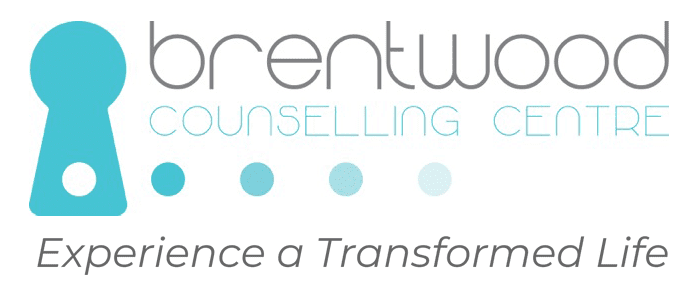By Dr. Michael Mandrusiak, Registered Psychologist
Does work stress have you feeling like something needs to change? Is the stress from your workplace creeping into your personal life?
Work can be a source of income, connection, achievement, and pride. But it can also be a source of stress.
Left unchecked, work-related stress can negatively impact the quality of our work and can even spill into our personal relationships in the form of irritability or preoccupation. Work-related stress can also impact our ability to concentrate, enjoy fun activities and get a good night’s sleep.
As a psychologist, I support many high achieving professionals that are dealing with work-related stress. Here are 5 common work-related stressors and what you can do to resolve them:
1. WORKLOAD IS TOO HEAVY
You are in a role for several years. Your role expands as you are given more and more responsibilities. You see these additions as opportunities to prove yourself and you rise to the occasion.
People are rightly impressed with your competence and the quality of your work. They come to depend on you more and more, heaping even more work onto your portfolio. Eventually, the workload is way beyond the original job description, and it all feels completely unsustainable.
Something has got to give, but you don’t see a way out.
Set Boundaries
Creep in both quantity and scope of work can happen for a couple of reasons. First, it can be hard to say “no”. Learning to set boundaries and to say no in a respectful but firm way – and better yet, promoting a culture in which saying no to the right things is embraced– is critical to managing workload.
Ask For What You Need
Another factor is that people often confuse an increase in workload or work scope with an increase in responsibility. If you are hoping to advance in a company, you are looking for opportunities to take on an increasing degree of responsibility. An example would be taking on the opportunity to supervise not only your own work, but that of a team.
While an increase in responsibility can sometimes be packaged with an increase in workload, it doesn’t have to be. Have a conversation with your one-up to look at how your portfolio can be reorganized when you take on more responsibility in order to prevent your workload from increasing.
2. RESOURCES ARE LIMITED
Your friend just moved to Silicone Valley and is calling you from the complementary pool-side martini bar. You know, just one of the employee perks!
Unfortunately for you, you work in an organization with limited resources – never enough budget, staff, or time!
You may be asked to take on responsibility for delivering results without sufficient supports to complete the project at hand. You may also feel like you are competing for limited resources with colleagues or other units. It is amazing how often resource limitations are lurking behind seemingly unrelated work-related stress and conflict.
If you don’t control resource availability, what can you do about it?
See Things for What They Are
The first step is to recognize and acknowledge that there is a resource challenge.
Problem Solve with Others
Next, it is time to set some boundary setting conversations. Instead of taking on pressure to perform a miracle, let your manager or higher-ups know about your assessment that the current resources are insufficient to meet the objectives.
Resist the urge to prematurely foreclose on your favourite solution. Rather, engage in collaborative problem solving with the relevant stakeholders to determine what options exist, including adding resources, limiting the project scope, altering the timeline or de-prioritizing other projects to re-allocate resources.
3. TRAINING OR SUPPORT IS INSUFFICIENT
You are promoted to take on a new role within your organization. Your director asks you to facilitate an important stakeholder meeting that is coming up. As the big meeting approaches, you attempt to schedule time to discuss the agenda and plans for the big meeting with your director, but they are not available.
Following the meeting, you receive feedback that you failed to address several important items during the meeting. You feel sick about this oversight and worried about your job security.
Did you make a terrible mistake accepting this promotion?
Feeling under-supported and ill-equipped for success can be very stressful. Employees may feel like imposters if they do not feel ready to perform the tasks that they are assigned. Often, they blame this sense of inadequacy on themselves when the issue is really that the organization hasn’t invested in sufficient training and support for them.
Address the need for training and support
When employees recognize unmet needs for training and support, they can proactively request the supports they need to increase their performance faster. They are also able to help shape the narrative that is being created about their performance by highlighting that the real issue is the need for sufficient training and support that this challenge can be collaboratively addressed.
4. INTERPERSONAL CONFLICT IS UNADDRESSED
At a retirement party, you hear the soon-to-be retiree announce that what made work so wonderful for all these years was the people. It is a lovely sentiment, and the gathering feels warm and cozy. But as you leave, your mind turns to the meeting earlier that morning when one of your colleagues blindsided you in front of your team lead by criticizing the solution you were proposing for the new data management system.
You can’t help but think that your job would be so much easier if you didn’t need to work with other people to get things done! People bring different ways of thinking, different personal histories, different communication styles, different expectations, and different priorities with them to these shared tasks. At times, it can add up to a recipe for miscommunication and frustration.
Instead of feeling like you are working with your colleagues, you can start feeling like you are fighting against them.
How do you deal with conflict so that it doesn’t become toxic and adversarial?
Stay curious and open
Start by giving colleagues the benefit of the doubt – most people care about their work just like we do. If they are resistant to our ideas or solutions, it may be because they are picking up on factors that we are overlooking.
Allow yourself to remain open and curious about what it is that they might be highlighting because it could help to make the ultimate solutions better. Avoid blame or accusations and take time to understand their priorities and the underlying interests or needs behind their positions.
Work through issues together
Be up front and honest about your desire to work together, potential sticking points that you see and boundaries or needs that you have.
If a colleague is repeatedly disrespectful toward you, is abusive or harassing or if you just can’t resolve the situation, support from a manager or HR may be necessary.
5. WORK-ROLE FIT IS LACKING
You have been in your role for several months. It took some time to truly understand the nature of your role, your responsibilities and the work culture that you entered. Now that you understand it better, you have a sinking feeling in your gut that it is not a good fit.
The required skills don’t match your aptitude and you find yourself constantly struggling and feeling inadequate. Or the job responsibilities don’t match your interests and you feel unmotivated and disengaged. Maybe the culture is just not quite right and doesn’t align with your values, leaving you feeling spiritually, morally, or ethically compromised.
Whatever the reason, being in a role that is not a good fit can be very stressful.
Finding a job that is a better fit is an obvious solution, but it isn’t always that easy. You may feel trapped by financial circumstances or limited opportunities elsewhere, or you may be reluctant to give up a role that still has potential.
Seek input from mentors and colleagues in your industry
Start to address the problem by engaging in career conversations with trusted mentors or industry contacts to get a better sense of yourself and the roles that might be a fit for you. Some re-skilling may be required for a lateral transition into a role that is a better fit.
Have a conversation with a trusted colleague in the organization
Career conversations with a trusted higher-up in your organization may also identify developmental opportunities within your current role, or alternative roles within the same organization. Even finding ways to add a small amount of the work you love to do into your current role can make a big difference.
Reach out for help
Navigating work-related stress is seldom simple. Part of maintaining effectiveness as a leader or professional can be knowing when to reach out for support.
If you are struggling with work-related stress, consider looking into whether your extended health benefits cover professional mental health support from a counsellor or a psychologist.
We are here to support you.







